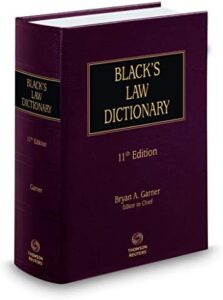Bail Bond Vocabulary Lesson: Legal Words You Need to Know To Understand The Bail Bonds Process
 You probably know a lot of fancy words. But do you know your bail bond vocabulary? Most people outside the legal profession don’t.
You probably know a lot of fancy words. But do you know your bail bond vocabulary? Most people outside the legal profession don’t.
You’ve likely heard a lot of legal terms before. You have probably heard legal terms like “Miranda Rights” from various law shows or in the news. However, these are often glossed over until they are needed. You could have the vocabulary like a seasoned lawyer. However, they won’t be very useful to you if you don’t know their meaning or how to use them.
The Legalese Of Bail Bond Vocabulary
The language of the law contains nouns, verbs and adjectives just like common English. This is commonly referred to “legalese.”
All these words seem to jumble together when you are going through the bail bond process. You need a basic understanding of legal talk for the bail bond process. Why? It will save you plenty of time and stress. Some important terms include Bail and Bail Bond. You also need to know the meaning of Warrant and Affidavit. As well as, Felony and Misdemeanor. In addition, you need to know the difference between Jail and Prison. You can find a more comprehensive list of terms at this glossary of legal terms.
Terms like bail, bail bonds, and collateral are all related.
Bail refers to the amount of money required to be paid to release a person from jail.
However, a bail bond is something a licensed bail bond company provides for a nonrefundable percent of the bail amount.
Collateral is an item or monetary amount held to ensure that the defendant will not evade their court hearings.
An affidavit is a written statement that you swear is true. A writ is a court order. A warrant is a document from the court (a writ) that orders the arrest of someone.
Finally, it is also important to understand the differences between a felony and misdemeanor. In addition to understanding the difference between jail and prison.
A felony is a more serious crime like murder or a high dollar amount financial crime. However, a misdemeanor covers smaller crimes such as shoplifting of small items. Jail is a temporary holding place usually managed by the county. A prison is a more permanent punitive housing facility that people spend time at depending on their charge if they are ruled guilty.
Bail Bond Vocabulary: Understanding Your Rights
You need to know your legal rights if don’t have a lawyer. Why? You will have to explain them to your friend or loved one in trouble. Therefore, you should be familiar with the names of the rights. You’re probably familiar with your Miranda rights which is the right to remain silent.
Staying silent is always in your best interest until you can see an attorney. This is because anything you say can and may be potentially used against you in court. Additionally, you generally have a right to expedient bail. However, this is dependent on the crime and the time of the year. The courts usually allow you a bail hearing within 48 hours after your arrest. This court hearing is where you, a family member, or a licensed local bail bondsman will post bail for you. You also have the right to an attorney even if you cannot afford one for yourself. If you can’t afford one, request one!
Final Thoughts
The court and lawyers will speaking a lot of legalese spoken in the bail process of posting bail. As a result, you need to have an idea of the terms that you will be hearing. If you have questions about bail bonds, the legal process of an arrest, or if you need a responsible, experienced, licensed bail bondsman, call BailOption to discuss your options.
To learn more, call the experts at BailOption.com today at .